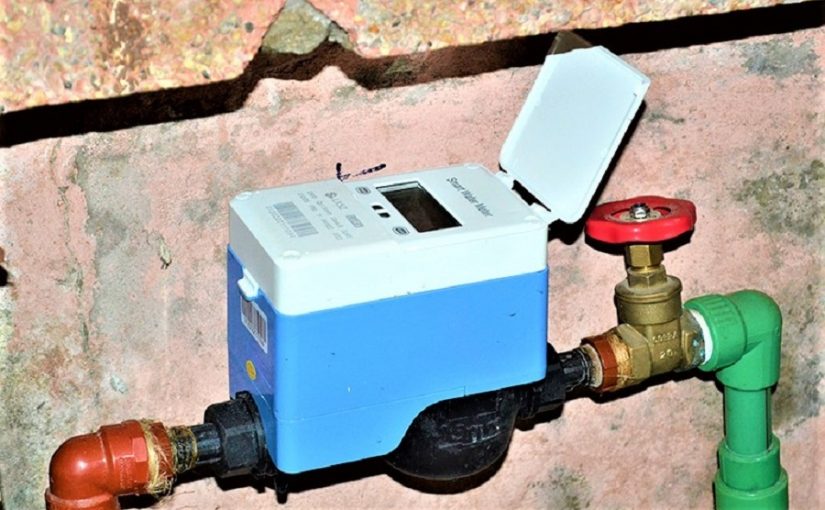The Zimbabwean Government has launched a nationwide cloud seeding programme aimed at enhancing rainfall and supporting the promising weather outlook for the 2025–26 summer cropping season. The initiative, designed to strengthen food security and climate resilience, is a significant step in stabilising rainfall patterns and mitigating the impact of potential dry spells during the critical farming season.
The cloud seeding programme, which is already underway, is being coordinated by the Meteorological Services Department (MSD) in collaboration with other stakeholders. It involves the use of two aircraft - one covering the northern parts of the country and the other the southern regions - to disperse substances into clouds, thereby enhancing rainfall and improving precipitation consistency, particularly in semi-arid regions that are prone to erratic weather.
Speaking at the National Climate Outlook Forum (NACOF) in Harare on Tuesday, Mrs. Rebecca Manzou, the MSD director, explained that the programme reflects the Government's proactive approach to stabilising weather patterns in anticipation of the summer cropping season. She added that more players are joining the initiative this year, highlighting the growing interest and support for the programme.
"The Government has two aircraft - one operating in the northern parts of the country and another in the southern parts - that will be doing cloud seeding," Mrs. Manzou said. "This is part of our strategy to ensure consistent rainfall, especially as we face challenges with mid-season dry spells."
The cloud seeding initiative is designed to complement the normal to above-normal rainfall forecast for the 2025–26 season, which is expected to be driven by a La Niña weather pattern. The La Niña phenomenon typically brings wetter conditions to the Southern African region, which bodes well for the upcoming farming season.
According to the MSD, Zimbabwe is expected to receive normal to above-normal rainfall across most provinces, particularly between December and March, the peak of the summer season. Mrs. Manzou emphasised that the forecast pointed to a favourable outlook, but also warned that November rainfall could be below normal before the season fully establishes in mid-December.
"Looking at the forecast, we anticipate widespread rainfall in December, but November may experience below-normal rainfall," she explained. "This will be followed by a full establishment of the rains by mid-December, ensuring the summer cropping season gets the necessary support."
She also urged farmers, planners, and stakeholders to stay updated with the latest meteorological forecasts, noting that effective climate management requires coordinated action from all sectors. "We provide the science, but it takes coordinated action from farmers, policymakers, and planners to make it work," she said.
The cloud seeding initiative is aligned with the broader goals of the 2025/26 Summer Cropping Plan, which was recently launched by the Ministry of Lands, Agriculture, Fisheries, Water, and Rural Development. The plan targets a production of 3.2 million tonnes of cereals, representing a 33 percent surplus over the national food and feed requirements, aiming to ensure food security for the country.
Professor Obert Jiri, Permanent Secretary of the Ministry of Lands, emphasized that the cloud seeding programme is not intended to replace natural rainfall but rather to complement it, ensuring that no area is left behind in the quest for a successful season. "Cloud seeding is about enhancing rainfall, not replacing it," he said. "We want to ensure that every farmer, every household, and every region benefits from the expected rains."
The programme forms part of the Government's wider efforts to climate-proof Zimbabwe's agricultural sector through the use of science, technology, and local participation. The Government is also focusing on expanding irrigation and strengthening the Pfumvudza/Intwasa programme, a key initiative designed to boost smallholder farmer productivity and ensure food security.
"We are taking a proactive approach to climate-proof our agricultural systems," Professor Jiri added. "The combined efforts of cloud seeding, irrigation expansion, and the Pfumvudza/Intwasa programme will ensure that Zimbabwe is better equipped to handle climate challenges and secure its agricultural future."
As the cloud seeding programme rolls out across the country, it is seen as a crucial component in stabilising the upcoming cropping season, helping Zimbabwe boost its food production, support climate resilience, and reduce vulnerability to unpredictable weather patterns. The initiative also underscores the growing importance of scientific and technological interventions in addressing the country's climate and food security challenges.
- The Herald
 Chiwenga unhappy with Bhulaayo Kraal Project
Chiwenga unhappy with Bhulaayo Kraal Project  SA decry 'non-existent' Beitbridge border post security
SA decry 'non-existent' Beitbridge border post security  Millions celebrate Diwali festival in India
Millions celebrate Diwali festival in India  Zimbabwe's dollar stock exchange surges 45%
Zimbabwe's dollar stock exchange surges 45%  Gold edges up as traders await guidance
Gold edges up as traders await guidance  Karo Platinum Project capex rises to US$546m
Karo Platinum Project capex rises to US$546m  Young Investment Professional (YIP) Graduate Programme 2019
Young Investment Professional (YIP) Graduate Programme 2019 










 Young Investment Professional (YIP) Graduate Programme 2019
Young Investment Professional (YIP) Graduate Programme 2019
Editor's Pick